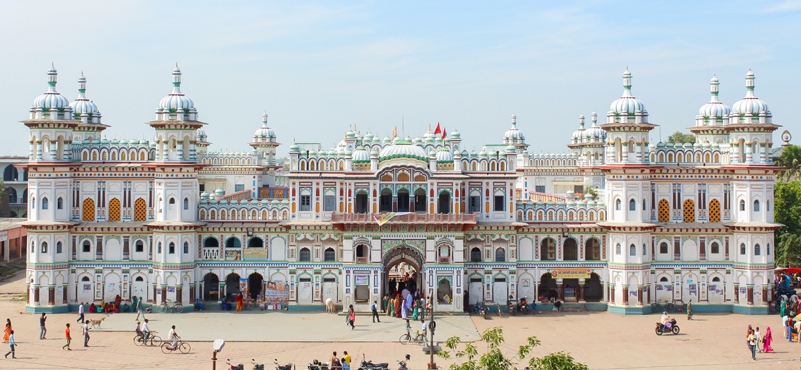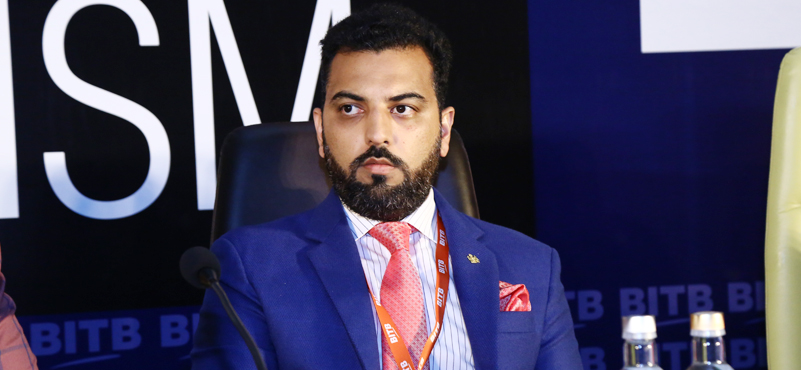Indians are taking advantage of drop in oil-prices and global economic sluggishness to travel abroad, says President, Yatra.com. He opines that with increase in FDI will help spurt businesses boosting travel and tourism.
In an extremely dynamic international environment, with Chinese market crash and refugee crisis in Europe, tourism and movement have seen some impact. India, too, will not remain untouched by these developments. Significant devaluation of Indian currency – once falling to Rs. 66 to a dollar – has impacted outbound. However, Sharad Dhall, President Yatra.com is of the opinion that inbound tourism has seen tremendous growth in the last year post devaluation of the rupee. “The rupee depreciation post the Chinese stock market crash came as a bonus for the inbound travel industry especially for travellers from Western Europe and US who saw reduction in their overall costs of travel to India,” he says. He supplements his argument by sharing that in addition to surge in enquiries by about 35 percent they also saw a marked increase in the number of bookings by about 21 percent during the period. “For outbound travellers, Yatra’s survey showed that when the rupee was at 63, Indian travellers remained unfazed and continued with their international holiday plans. However, when the rupee dipped to 66, Indian tourists changed their plans, shortened their trips as well as changed their choice of destinations,” says Sharad. While it also helped boost domestic travel as “some travelers deferred plans of holidaying internationally and looked at exploring destinations within India,” he shares.
Nation’s rigorous international engagement in the past year with the international community also helped inbound, he tells us when asked whether PM’s whirlwind tours had helped generate interest in India. It is on the policy-front that the government has scored, he believes. “India has been actively granting Visa-On-Arrival and E-Visas to a number of countries around the world. The process is definitely a lot more convenient and we have definitely seen a growth in enquiries and bookings from foreign tourists post e-visa facility,” he says.
Indians, too, with constant innovation in technology, access to smartphone driven internet and amidst a plethora of service providers have changed the way they travel. There has been in a sharp increase in the number of people opting to indulge in weekend getaways. “Now Indians are looking to take breaks more often with people planning holidays up to 2-3 times in a year. The trend of taking frequent breaks on long weekends has been growing over the past few years as people look for a quick, short respite from the hustle-bustle of their hectic lives. Our bookings for long weekends have almost doubled over the last one year as they do not require too much planning and are typically spontaneous in nature,” he tells us. Family vacations also continue to be a favourite, especially during the winter and summer breaks.
With the rise of a neo-aspirational middle class, Indians are visiting unexplored destinations with countries like Cambodia, Fiji, Vietnam, and Seychelles gaining in popularity. “Holidaying internationally now has become more affordable with OTAs such as Yatra showcasing great deals and packages for various international destinations. The drop in oil prices has resulted in lower flight prices and a plethora of hotel deals and budget accommodation options has also helped in driving down the overall cost of an International break,” he explains. The has led to an emerging trend of budget travellers which means more and more people including the youth are now willing to take holidays.
It is heartening to note that amidst a global turmoil, Indian economy is showing signs of stability. India recently piped China and the USA to become the biggest FDI destination. It augurs well for country’s potential in tourism industry feels Sharad. He believes that the government is taking several steps to make India a global tourism hub. “FDI is one such step in the same direction. It definitely will induce a fresh life in the sector and we are confident that it will be see new entrants in airline carriers and hotel chains coming to India and will be overall beneficial for all types of tourism; medical, adventure, heritage, inbound and outbound tourism,” he asserts.




































